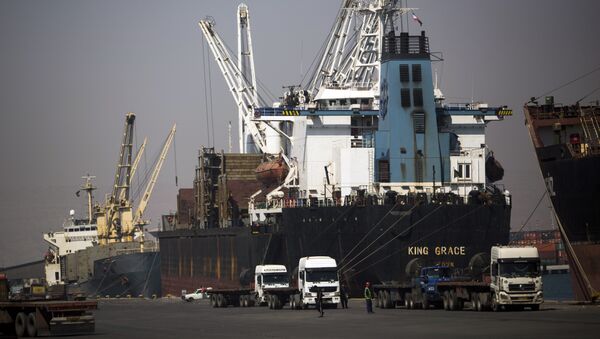Morgan Stanley’s report predicts that the Brent price will reach $90 per barrel by 2020 as demand for crude oil skyrockets by 1.5 million barrels a day, supported by the new shipping rules.
In less than two years, new regulations from the International Maritime Organization, designed to curb air pollution, are to come into force. They require that vessels are either equipped with filters or use cleaner fuel with less sulfurs. As the analysts expect that the majority of shippers will prefer the latter option, the consumption of middle distillate fuel, such as diesel and marine gasoil will increase, thereby pushing the demand for oil higher, dragging crude prices up.
On the winning side of this equation are such refiners as Repsol, Reliance Industrie, Valero Energy and Tupras Turkiye Petrol Rafinerileri as their production systems are tailored for producing middle distillates.
According to Morgan Stanley, the refiners are already struggling to meet the growing demand for these particular products, including jet and diesel fuel, as reserves have nearly reached five year lows. The current rise of oil production is fueled by natural gas condensates and liquids, neither of which is used for producing the needed diesel.
The price growth was prompted by the recent cuts from the Organization of Petroleum Exporting Countries and the consequences of the US decision to withdraw from the Iran deal and to re-impose sanctions on the Islamic Republic, which could also affect the European companies working there. The Brent crude oil price has already hit 80 dollars per barrel, its highest since November 2014, following Total's announcement that its 40-million-euro (47-million-dollar) gas project in Iran will be scrapped unless the company is exempt from the US' looming anti-Iranian sanctions.
READ MORE: Global Oil Prices on the Rise as France's Total Warns to Scrap Its Iran Project
Late last week, US National Security Advisor John Bolton made it clear that Washington may slap sanctions on EU companies cooperating with Tehran after the US administration's withdrawal from the Iran nuclear deal, also known as the Joint Comprehensive Plan of Action (JCPOA).
On May 8 President Donald Trump announced his decision to withdraw the US from the Iran nuclear deal, also pledging to reinstate the anti-Iranian sanctions that were lifted as a result of the agreement.
The JCPOA was signed by the EU and the P5+1 group of countries, including China, Germany, France, Russia, the UK and the US, on June 14, 2015. The agreement envisages a step-by-step lifting of anti-Iranian economic sanctions in exchange for Tehran curbing its nuclear program and allowing inspections to ensure that the nature of this program is purely peaceful.



